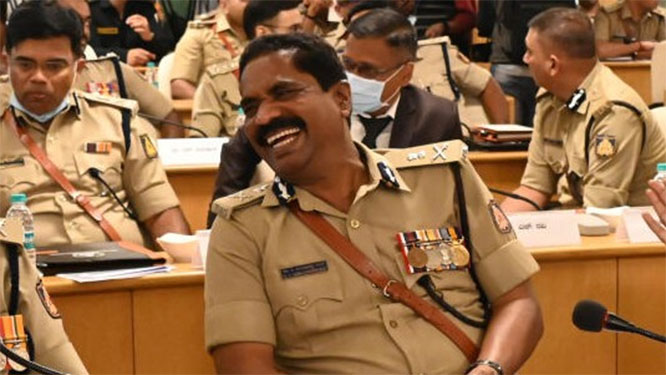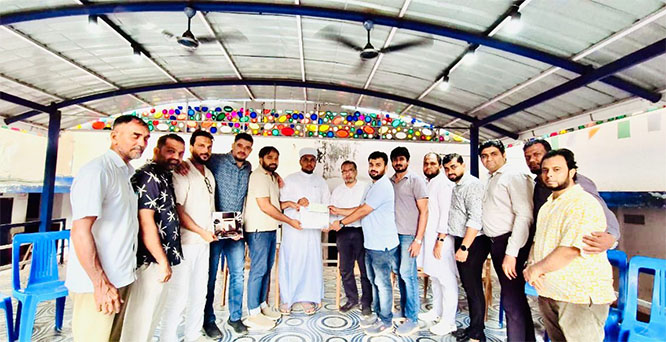Change, fascinate us. It is one of the most common things desired no matter at what age group we are? Change… one of the common phenomenon we come across with, for every one of us changes inspire, they have an alluring attraction, at times appear quite synonymous to our nature. Let us revisit different spheres and ideas of change.
Changes are Inevitable
The most inevitable thing on earth is ‘change’. Some changes are simply out of our control and some are within our grasp. No one can claim to change the flowing time. Nobody can stop the growing changes in a tree. Nobody can stop the change appearing in color of the crop when it reaches its final stage. The change in the fetus in the womb of the mother is gradual and significant. The simultaneous change in skin complexion along with the age is inevitable, simply unstoppable. The change in voice of the growing toddler is usually perceived as a good sign. The change in the character is observed as a good sign, whereas the inverse change in anyone’s attitude is strongly disliked. In a nut shell, the human lives are but an embodiment of change from beginning to the end:
O mankind, indeed you are moving towards your Lord with great exertion and will meet it
(Surah Al-Inshiqaq: 6)
So ‘change’ is a prerequisite of life. A child in womb changed his abode and stepped into the real world for a bubbly life. We left school and entered into the college premises, teachers have changed, new friends replaced the old ones, our approach towards studies get renewed so was the case of seriousness. When we left college, a new ambiance of a working place welcomed us with folded hands…. then marriage, then parenthood, then a change in status from son or daughter to father or mother, and then from father or mother to grandfather or grandmother…..then what? Finally, we will get transformed from this world to the eternal one when the soul departs from our body and changes her worldly abode.
Changes are inevitable. Some healthy, some unhealthy, some positive, some negative, some avoidable and some absolutely unavoidable. Now just think over the question again, the answer appears in quite interesting modes.
The Spheres of Changes
There are many spheres wherein you can observe a change, let yourselves and others know about its reality. The change in an individual life is always preferable. The change in nature is unavoidable; sometimes it seems that humans are responsible for the change in weather, temperature, and abrupt changes in the day to day affairs.
Imbalance in growth is always credited to the change in lifestyle. The increase in eateries and outlets is again attributed to the change in food habits. The change in customs and traditions has even caused a humongous change in the history of nations. Change, is such dynamic phenomenon that you can’t single out a particular fact about it. There are spheres of an individual, group and nature, wherein you can observe the phenomenon to arrive at a conclusion and say, change is….positive here, negative there, desirable here unwarranted there:
Mischief has appeared in the land and the sea on account of men's own doings that He may make them taste same of their (evil) works: maybe they mend their ways.(Surah Ar-Rum: 41)
Changes in the Individual
Change, as such is preferable for the individual as it totally transforms the whole persona. Change in inner self is a hallmark of perfection, you can say the moment one realizes the self, a sustainable journey of progress and prosperity commence. The change in inner self is positive in the sense it helps realize the realities of life, by change here we mean a true understanding of:
• Purpose of life
• Strength and weaknesses
• The status and dignity of parents
• Importance of time
• Constructive thinking
• Healthy criticism
• Upholding of values
• Annihilation of evils
• Depth of relationship with family members
• Friendship
• Favors of God
• Love of humanity
• Importance of selfless service
• Responsibilities towards the country and nation.
• Role in the progress and prosperity of the society.
In due course of time, the set values through attitudes do appear, the most preferable ones, that can be dreamt of pertain to a process of transformation from unhealthy to healthy attitudes that is from:
• Ingratitude to gratitude
• Lethargy to dynamism
• Pessimism to optimism
• Hatred to love
• Immoderate to moderate
• Intolerance to tolerance
• Anguish to content
• Uncertainty to certainty
• Indecisiveness to decisiveness
• Disrespectful to respectful
• Rudeness to politeness
• Traditional to creative
• Unhelpful to helpful
• Unfriendly to friendly
• Unrealistic to realistic
Upon achieving something in life, if any individual depicts changes of the following nature can be termed as unwarranted and negative ones. That is on achieving the following, if a healthy attitude gets replaced with an unhealthy one, in no way it would be appreciable:
• Good job
• Fame
• Wealth
• Marital ties with families of high status
• Achievements
• Rewards
• Fulfillment of dream projects
• Position and status
• Successful completion of assignments.
• Flourishing of business
• Children
Changes in Groups
We have a social existence; we are bound to live together with our own norms, values, cultures and traditions. At times, the human history has reflected the collective behavior of people dwelling in the society. A healthy change in their thinking and attitude has brought in many a revolution. If we look at the countries of the world that are enjoying an independent status now were once under the clutches of some ‘dominant forces’, because of a change in the mindset of the people and earnest efforts for transformation from the following have paid them with rich dividends:
• Dependency to independency
• Low self-esteem to high self-esteem
• Powerlessness to power
• A sense of bondage to freedom
Therefore, it is rightly perceived that the successful present and the bright future of the country rest on the healthy mindset of the inhabitants. If any society claims its progress and development, but fails to ensure a healthy mindset of its citizens is bound to perish in one or the other way, the human history bears testimony to the fact. Therefore, material progress alone is quite insufficient for a sustainable progress of the society. To be on top of the human ladder a society has to have morally sound people along with its material developments. Thus the changes can be termed as healthy if the people embellish their persona with the following traits on constructive lines:
• Silence with resistance
• Violation with respect
• Hatred with peace
• Degradation with honor
• Insensitivity with sensitivity
• Irresponsibility with accountability
It’s the beauty of progress that a society has to be alive by means of material progress whereas its citizens should alive by means of their vibrant collective-conscience. Such collective conscience personifies their hearts and minds, and helps lend their unconditional support for all the virtuous acts and vehemently oppose any act that is detrimental to the cause of humanity. This is what we mean by this Quranic instruction:
Surely Allah enjoins justice, kindness and the doing of good, to kith and kin, and forbids all that is shameful, evil and oppressive. He exhorts you so that you may be mindful. (Surah An-Nahl: 90)
Changes in Nature
Well, here we have to put our fingers crossed, as most of the matters pertain here are not totally related to us as was the case of changes in individual and group spheres. Changes in nature can be termed as precious blessings of God had not been so overtly showered on us, we would have surely succumbed to the internal and external pressures, the changes that are blessings are apparent in:
• Days and nights
• Weathers
• Seasons
• Flowing of breeze
• Blossoming of flowers
• The attractive landscapes
• The increasing and decreasing levels of oceans
• Temperature in accordance with the seasons
The changes that do not happen in the following have become a valid reason for human existence on earth:
• In the position and movement of sun
• Waxing and waning of the moon
• Earth’s speed in rotations
• The distance between the sun, earth and the moon
The nature that ensures healthy present and a prosperous future largely depends on the human attitudes. Now the abrupt changes in weather and seasons, the rise in the temperatures, scarcity of water, rise in sea levels, deforestation, drying up of rivers, sound, water, soil and air pollutions have greatly affected the nature in particular and human lives in general. Again, the unhealthy practices of human rights violation, female foeticides, exploitation, corruption, mischief on the land have caused the human lives to change drastically from peaceful existence to a threatening one.
Hope for Change, Change for Hope
Let us hope for a change, a healthy one, both at individual and collective levels. The way changes in nature depict a progressive world and sustainable human lives, similar changes initiated through individual and collective efforts would change the status and position of humans. They will bring them from depth of darkness to the light, from ill fate to good one, from disparity to hope, from disintegration to integration, from hatred to love, from cruelty to humanity…….after all change, at large, is positive and desirable as it connects us with the Divine Likings.
The author is the Director of AJ Academy For Research and Development, Raichur, Karnataka. He can be reached at [email protected]






Comments
Add new comment